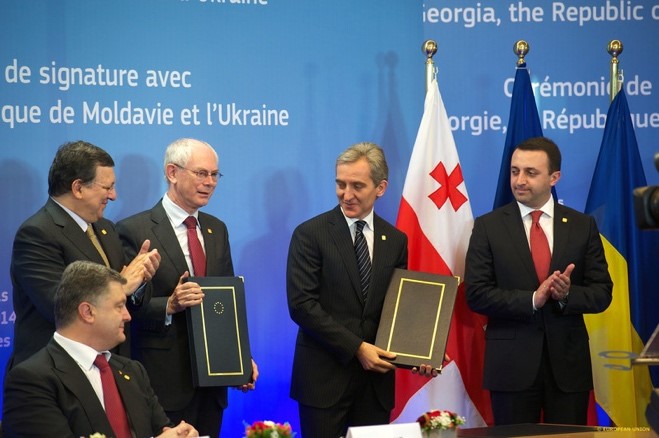by George Chanturia, Local Correspondent from Georgia.

It is the first day of November. As any Friday in Tbilisi, this is no exception in terms of traffic. I am trying to get to the State Chancellory to join the protesters. This time it is about gambling. CSOs and the group of activists are trying to advocate for better regulations. Unfortunately, this wave of protests was triggered by a suicide act committed by a young man, Sandro Beradze, an operator from the Georgian Public Broadcaster.
According to different sources, there have been 16 cases of suicide in the last three months where gambling played one of the key factors.
Today, gambling business is one of the most profitable in Georgia. It started thriving since its establishment in the 1990s. Well, it is not a secret that poverty and desperation increase the probability to get involved and start playing. Since these factors are still in play, it should be no surprise that today more than 700,000 people are actively engaged. Despite poverty and lack of hope, experts and CSOs say that other major reasons for such high engagement are:
- Extremely aggressive propaganda and advertisement. These ads are everywhere in every corner of every city in Georgia – on buses, train stations, taxes, street banners, shops and, most of all, television and internet. You would not be able to watch a movie without seeing these ads a number of times.
- Availability in terms of age, geography and finance. Even though there is an age restriction, it is very easy to go inside the gambling houses. It is even easier to register on the internet and play online. You would only need Gel 1 ($0.34).
- Irresponsible Governance. It is one thing that there are bad regulations or lack of its implementation, but it is another thing that the local governance is supporting it. E.g. when the City Hall proposed taxi drivers to paint their cars in white (according to the new regulation, every taxi should be painted in white), one of the terms was to put an advert of one of the gambling companies.
Anyhow, back to the demonstration. More and more people are joining. I am happy to see public figures as well as ex or future politicians. Most of all, I am glad to see new CSOs who advocate for this cause. There are movements such as Mothers Against Gambling, Youth Against Gambling and Georgian Gambling Research and Prevention Center (GPRAPC). Their major demand include a ban on gambling advertisements. I was happy to hear that the Georgian Public Broadcaster was the first one to ban all ads from its channels. It was followed by the National Parliamentary Library of Georgia. I hope this wave of protest would continue and would have much tangible and better results.

By the way, not to confuse me with an outsider who is trying to give “wise” recommendations, since the age of 14-15, as most of the teenagers in Georgia, I was gambling a lot myself. Fortunately, due to many factors including social ones, I did not became addicted to it. However, a lot of others are. Gambling became so common in Georgia that according to a study 59% of the teenagers aged 15-18 are gambling to various degrees predominantly with online table games and slot machines. Especially, if it is one of those nights with the Champions League and some beer.
As for the CSOs, they have to be even more active, pro-active and not re-active. So far, they are reacting to different events. Today, their mission is to be successful in terms of public mobilization. Their success totally depends whether they would be able to gather supporters including within the CSO community. I hope they would, because today it is one of the forefronts of the battle.
P.S. I want to thank the newly established online media portal www.publika.ge and its Head of News Natia Amiranashvili for the photos and data.
[su_divider]
This article was produced by George Chanturia, the Project’s local correspondent and EaP Civil Society Fellow from Georgia in the framework of the EU-funded ‘Eastern Partnership Civil Society Facility – Regional Actions’ Project. Its contents are the sole responsibility of George Chanturia and do not necessarily reflect the views of the European Union or the Project
Read more about our local correspondents here.




